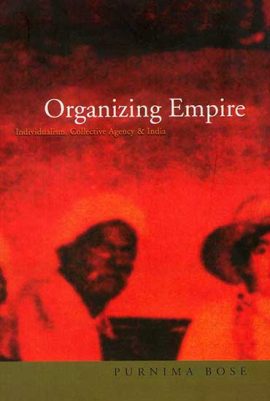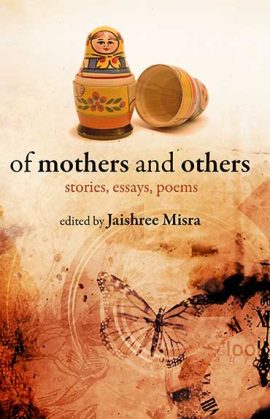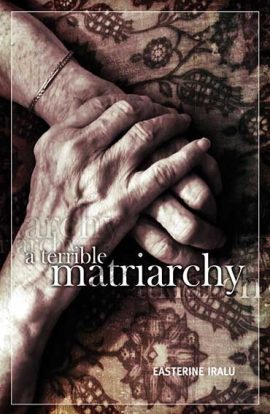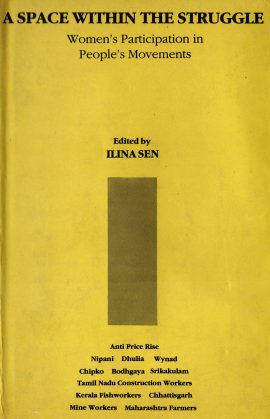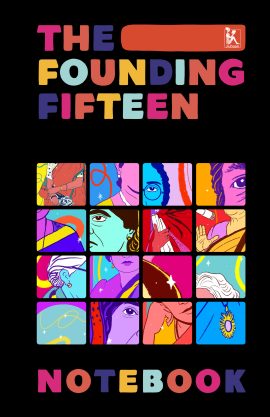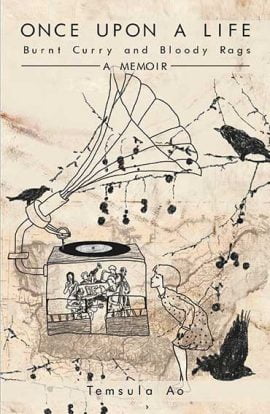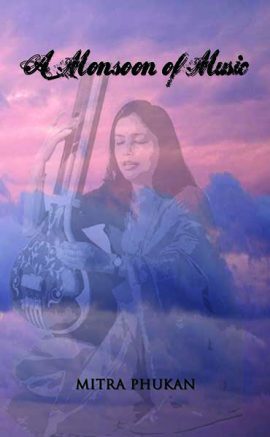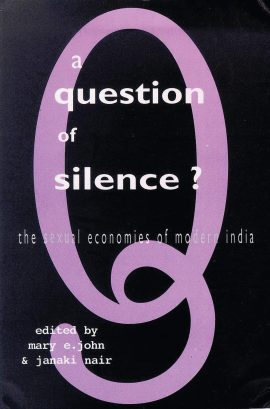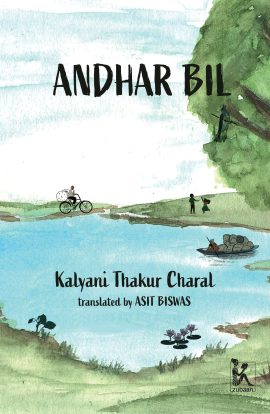No products in the cart.
Return To Shop
Log in / Sign in
Login
Register
Organizing Empire: Individualism, Collective Agency, and India
From ₹ 248During the current COVID-19 surge we are shipping orders from Delhi once per week. Please allow 8-10 business days for delivery.
Organizing Empire critically examines how concepts of individualism functioned to support and resist British imperialism in India. Through readings of British colonial and Indian nationalist narratives that emerged in parliamentary debates, popular colonial histories, newsletters, memoirs, biographies, and novels. Purnima Bose investigates the ramifications of reducing collective activism to individual intentions. Paying particular attention to the construction of gender, she shows that ideas of individualism rhetorically and theoretically bind colonials, feminists, nationalists, and neocolonials to one another. She demonstrates how reliance on ideas of the individual - as scapegoat or hero - enabled colonial and neocolonial powers to deny the violence that they perpetrated. At the same time, she shows how analyses of the role of the individual provide a window into the dynamics and limitations of state formations and feminist and nationalist resistance movements.From a historically grounded, feminist perspective, Bose offers four case studies, each of which illuminates a distinct individualizing rhetorical strategy. She looks at the parliamentary debates on the Amritsar Massacre of 1919, in which several hundred unarmed Indian protestors were killed; Margaret Cousin's firsthand account of feminist organizing in Ireland and India; Kalpana Dutt's memoir of the Bengali terrorist movement of the 1930s, which was modeled in part on Irish anti-colonial activity; and the popular histories generate by ex-colonial officials and their wives. Bringing to the fore the constraints that colonial domination placed upon agency and activism, Organizing Empire highlights the complexity of the multiple narratives that constitute British colonial history.PURNIMA BOSE is Associate Professor of English at Indiana University.
Of Mothers and Others: Stories, essays, poems
From ₹ 395
This multi-layered and thought-provoking collection offers a new and alternative view to the cosy images of motherhood that we so often assume. Motherhood for the writers in this collection is by no means a simple state but involves searching questions about identity, writing, one's place in society - the very nature of the self.Questions of adoption, childlessness, surrogacy, bereavement and abuse figure alongside poems and stories that explore the tender, the funny, the uplifting aspects of this most vital relationship, between children and their mothers at any age. Contributors include: Manju Kapur, Shinie Antony, Jai Arjun Singh, Jahnavi Barua, Meena Alexander, Mridula Koshy, Kishwar Desai, Shashi Deshpande, Bulbul Sharma, Tishani Doshi, Shalini Sinha, Jahnavi Barua, Smriti Lamech, Nisha Susan, Humra Quraishi, Sarojini N., Vrinda Marwah, Sarita Mandanna, Anita Roy, and others. Published in association with Save the Children India
Select format
This product has multiple variants. The options may be chosen on the product page "It’s to novelist Jaishree Misra’s credit that she, as editor of this volume, was able to draw out so many different voices, some highly reputed, on a rarely-explored theme." -- Smruti Koppikar, Hindustan Times
Books, Books from the North East, Books from the North East, e-Books, Fiction, Fiction, New Releases
A Terrible Matriarchy
From ₹ 248"I was the youngest in a family of five children. I sometimes felt I was an afterthought, and maybe Father and Mother didn't quite know what to do with me. Also, because I was a girl after four boys they never seemed to be sure whether to buy me girls' clothing or let me wear leftover boys' clothing."Young Dielieno is five years old when she is sent off to live with her disciplinarian grandmother who wants her to grow up to be a good Naga wife and mother. According to Grandmother, girls didn't need an education, they didn't need love and affection or time to play or even a good piece of meat with their gravy! Naturally Dielieno hates her with a vengeance.This is the evocative tale of a young girl growing up in a traditional society in India's Northeast, which is in the midst of tremendous change.Easterine Kire writes about a place and a people that she knows well and is a part of and brings to the storytelling a lyrical beauty which can on occasion chill the reader with its realistic portrayals of the spirits of the dead that inhabit the quiet hills and valleys of Nagaland._____________________________________________________________________________________EASTERINE KIRE has written and published a number of short stories and anthologies of poetry. She was a guest of Norwegian PEN from 2005-2007 and during this period, travelled and spoke extensively on the idea of self-exile, writing in another country, Naga literature and the conflicted state of Nagaland. She is author of A Naga Village Remembered, Mari and Bitter Wormwood.
A Space Within the Struggle: Women’s Participation in People’s Movements
From ₹ 325
Popular representations of the women's movement in India have created many misconceptions about its size and scope—from the assertion that the movement relates exclusively to urban, middle-class women, to the claim that there is no 'mass women's movement' to speak of. Debates within the movement itself take in these issues, but go one step further in posing a different set of related questions: what, if any, is our definition of a women's movement? How far has the movement been able to address the issues of caste and class? What has been the relationship between 'feminism', non-party, autonomous women's groups and the left? How far have activists within the movement been able to build a theoretical perspective, to conceptualize issues that tie in at the base of the struggle? What, in other words, has been the ideology of the movement?The essays in this collection address these questions both directly and indirectly. Written by activists from within the different movements, as well as by researchers, they deal with popular movements over the past few decades in which women have participated in large numbers. The ways in which such movements have had to define struggles and issues to 'accommodate' women in their ranks have charted out new dimensions for women's struggles in India. These dimensions have not only gone beyond existing definitions of 'feminism'—a concept that has acquired a value-loaded connotation of being 'narrow'—but have also exploded the common left standpoint that women's issues do not matter in larger struggles against class exploitation. It is argued here that an understanding of the nature of these struggles becomes important in order to gain a perspective on the women's movement that is more truly representative of the aspirations of the generality of Indian women than most currently available feminist theory.
ILINA SEN was a professor of sociology, trade union activist and President of the Indian Association of Women's Studies (IAWS), as well as a faculty member at the Mahatama Gandhi Antarashtriya Hindi Vishwavidyalya, Wardha, and the Advanced Centre for Women’s Studies at the Tata Institute of Social Sciences, Mumbai. She was also a Senior Fellow in the Nehru Memorial Library, and was closely associated with women's and mine-workers' movements, such as with the Chhattisgarh Shramik Sangh in Madhya Pradesh. Her other books include Inside Chhattisgarh: A Political Memoir (2014) and Sukhvasin: The Migrant Woman of Chhattisgarh (1995). She was affiliated both with the Indian Council for Social Science Research and the Centre for Women's Development Studies, and published on demography, women's work, and the theory and practice of the women's movement in India.
Select format
This product has multiple variants. The options may be chosen on the product page ILINA SEN was a professor of sociology, trade union activist and President of the Indian Association of Women's Studies (IAWS), as well as a faculty member at the Mahatama Gandhi Antarashtriya Hindi Vishwavidyalya, Wardha, and the Advanced Centre for Women’s Studies at the Tata Institute of Social Sciences, Mumbai. She was also a Senior Fellow in the Nehru Memorial Library, and was closely associated with women's and mine-workers' movements, such as with the Chhattisgarh Shramik Sangh in Madhya Pradesh. Her other books include Inside Chhattisgarh: A Political Memoir (2014) and Sukhvasin: The Migrant Woman of Chhattisgarh (1995). She was affiliated both with the Indian Council for Social Science Research and the Centre for Women's Development Studies, and published on demography, women's work, and the theory and practice of the women's movement in India.
The Founding Fifteen Notebook
₹ 450Features:
- Demy (5.5x8.5 inches)
- Hardback
- Natural Shade Paper
- Ruled pages
- Artwork on Separator Page
This notebook is the result of a collaboration between different organizations and individuals: ReclaimConstitution, who commissioned a set of postcards and a notebook on the stories of the fifteen and who generously agreed to give that material a second life. The stunning artwork is contributed by thebigfatbao, the text for the biographical notes is written by Nisha Abdulla, the extracts of speeches have been sourced by Zubaan, the design and layout comes from Sukruti Anah Staneley, and the whole is brought to you by Zubaan.
Once Upon a Life: Burnt Curry and Bloody Rags
From ₹ 315
A moving memoir by one of the most highly respected and important authors from India’s Northeast.Temsula Ao was born in 1945 in the Assamese town of Jorhat. Her happy childhood with her five siblings was cut tragically short with the deaths of both their parents. Desperately poor, emotionally scarred, lonely and often hungry, the young Temsula made up for her lack of resources with courage and determination. From these unpromising beginnings, Ao went on to build a distinguished teaching career, serving as Director of the Northeast Zone Cultural Centre, and finally Dean of the School of Humanities and Education, North- Eastern Hill University, Shillong. Temsula Ao describes the book as “an attempt to exorcise my own personal ghosts from a fractured childhood that was ripped apart by a series of tragedies... [it] is about love and what it is like to be deprived of it.”For her readers, Ao’s memoir gives not only an insight into her role as a leading figure in the Northeast, but is also a moving account of a writerly life.
Select format
This product has multiple variants. The options may be chosen on the product page The Fabulous Feminist: A Suniti Namjoshi Reader
From ₹ 225
It was on a sabbatical in England in the late seventies that Suniti Namjoshi discovered feminism - or rather, she discovered that other feminists existed, and many among them shared her thoughts and doubts, her questions and visions.Since then, she has been writing - fables, poetry, prose autobiography, children's stories - about power, about inequality, about oppression, effectively using the power of language and the literary tradition to expose what she finds absurd and unacceptable.This new collection brings together in one volume a huge range of Namjoshi's writings, starting with her classic collection, Feminist Fables, and coming right up to her latest work.
Select format
This product has multiple variants. The options may be chosen on the product page "Namjoshi is a fabulist who is never preachy. A feminist who is never humourless. A poet who is never arcane. An intellectual who is never pedantic... Her work points to a deeply internalized radicalism, one that has as much depth as it has edge. Quirky, funny, intellectually agile, capable of making connections between the mundane and the metaphysical, adept at sniffing out the archetypal in the culturally particular, they point to a mind that is as engaged as it is engaging." -- Arundhathi Subramaniam
A Monsoon of Music
From ₹ 225
Four musicians: a bright, young, aspiring student, two highly respected gurus married to each other, and a globe-trotting star, each deeply immersed in the tradition of Hindustani shastriya sangeet. Their lives intersect in the small mofussil town of Tamulbari on the banks of the Brahmaputra.Against the backdrop of a magnificent musical heritage and the haunting and timeless ragas that sweep through the pages of this wonderfully evocative novel, Mitra Phukan presents the ambitious sitarist Kaushik Kashyap, already a 'name,' who tours the world with his beautiful Italian student, Nomita, the shy, small-town vocalist, whom Kaushik's parents have chosen for him, Nomita's Guruma, the beautiful, calm Sandhya Senapati, and her husband, the handsome Tridib Barua, who seem to be hiding deep, dark secrets, and Guruma's friendship with the well-known industrialist Deepak Rathod.As the eventful monsoon months give way to autumn, the characters come to a deeper understanding of themselves even as their lives change dramatically and forever. By turns serious, deeply moving and utterly irreverent, Mitra Phukan's eye for detail, her immense knowledge of Hindustani classical music and her profound understanding of human nature come together in this remarkable novel.
Select format
This product has multiple variants. The options may be chosen on the product page A Question of Silence: The Sexual Economies of Modern India
From ₹ 250
Has there been a "conspiracy of silence" regarding sexuality in India, be it within social movements or as a focus of scholarship? The essays in this volume use diverse perspectives to develop an understanding of the institutions, practices and forms of representation of sexual relations, and their boundaries of legitimacy.From unravelling the Kamasutra (the text) to investigating Kamasutra (the condom) the volume includes essays on how sexuality has been framed by the law, within social movements, or has been the site for patrolled caste, ethnic or gender identities.CONTRIBUTORS: Mary E. John | Kumkum Roy | Samita Sen | Tejaswini Niranjana | Anandhi S. | U. Vindhya | Susie Tharu | Ravi Vasudevan | Uma Chakravarti | V. Geetha | Prem Chowdhury | Kalpana Ram
MARY E. JOHN is a Professor of Women's Studies, Senior Fellow and Director (2006-2012) of the Centre for Women's Development Studies, New Delhi. She was previously an Associate Professor and Deputy Director of the Women’s Studies Programme at Jawaharlal Nehru University, New Delhi. She has been working in the fields of women’s studies and feminist politics for many years, and her publications include Discrepant Dislocations: Feminism, Theory and Postcolonial Histories (1996), the co-edited volume Contested Transformations: Changing Economies and Identities in Contemporary India (2006), Women’s Studies in India: A Reader (2008), and the forthcoming co-edited volume Women in the Worlds of Labour: Interdisciplinary and Intersectional Perspectives.JANAKI NAIR is a Professor of Modern Indian History at the Centre for Historical Studies at Jawaharlal Nehru University, New Delhi, and was Visiting Fellow at the Centre for the Study of Culture and Society, Bangalore. She received the New India Foundation Book Prize for The Promise of the Metropolis: Bangalore’s Twentieth Century (2005), and her other publications include Women and Law in Colonial India: A Social History (published by Kali for Women, 1996), Miners and Millhands: Work, Culture and Politics in Princely Mysore (1998), and Mysore Modern: Reconceptualising the Region under Princely Rule (2012).
Select format
This product has multiple variants. The options may be chosen on the product page MARY E. JOHN is a Professor of Women's Studies, Senior Fellow and Director (2006-2012) of the Centre for Women's Development Studies, New Delhi. She was previously an Associate Professor and Deputy Director of the Women’s Studies Programme at Jawaharlal Nehru University, New Delhi. She has been working in the fields of women’s studies and feminist politics for many years, and her publications include Discrepant Dislocations: Feminism, Theory and Postcolonial Histories (1996), the co-edited volume Contested Transformations: Changing Economies and Identities in Contemporary India (2006), Women’s Studies in India: A Reader (2008), and the forthcoming co-edited volume Women in the Worlds of Labour: Interdisciplinary and Intersectional Perspectives.JANAKI NAIR is a Professor of Modern Indian History at the Centre for Historical Studies at Jawaharlal Nehru University, New Delhi, and was Visiting Fellow at the Centre for the Study of Culture and Society, Bangalore. She received the New India Foundation Book Prize for The Promise of the Metropolis: Bangalore’s Twentieth Century (2005), and her other publications include Women and Law in Colonial India: A Social History (published by Kali for Women, 1996), Miners and Millhands: Work, Culture and Politics in Princely Mysore (1998), and Mysore Modern: Reconceptualising the Region under Princely Rule (2012).
Books, Books from the North East, Books from the North East, e-Books, Feminism In India Recommends, Feminism In India Recommends, Fiction, Fiction
Bitter Wormwood
From ₹ 223
Kohima 2007. A young man is gunned down in cold blood, the latest in a long list of casualties of the conflict that has scarred the landscape and brutalised the people of Nagaland.Easterine Kire’s brilliant novel traces the history of this bloody conflict through the life of one man, Mose, whose childhood, his family, traditions and rituals, paint a picture of a peaceful way of life, now long vanished. The coming of the radio is one of the markers of change, something that connects Mose’s family and community to the wider world. It brings knowledge of Partition, independence, a land called America and more. Growing up, Mose and his friends become involved in the Naga struggle for independence, and are caught in a maelstrom of violence – protest and repression, attack and reprisal – that ends up ripping communities apart.Kire’s unusual story takes its name from a herb, bitter wormwood, traditionally believed to keep evil and ‘bad’ spirits away. For the Nagas, facing violence all around, the herb becomes a powerful talisman: ‘we sure could do with some of that old magic now.’ Bitter Wormwood is a poignant exploration of the human costs that lie behind political headlines in one of India’s most beautiful and misunderstood regions.
EASTERINE KIRE is a writer, poet and translator. She is Nagaland’s first novelist in the English language. Her book, When the River Sleeps (Zubaan, 2014), won the 2015 Hindu Prize for Fiction. She is also the author of A Naga Village Remembered (2003), A Terrible Matriarchy (Zubaan, 2007), Mari (2010), Life on Hold (2011), the Sahitya Akademi-honoured Son of the Thundercloud (2016), Don’t Run, My Love (2017), and The Rain-Maiden and the Bear-Man (2021). She lives in Norway.
Select format
This product has multiple variants. The options may be chosen on the product page "Easterine Kire is the keeper of her people's memory, their griot. She is a master of the unadorned language that moves because of the power of its evocative simplicity." -- Paul Pimomo
EASTERINE KIRE is a writer, poet and translator. She is Nagaland’s first novelist in the English language. Her book, When the River Sleeps (Zubaan, 2014), won the 2015 Hindu Prize for Fiction. She is also the author of A Naga Village Remembered (2003), A Terrible Matriarchy (Zubaan, 2007), Mari (2010), Life on Hold (2011), the Sahitya Akademi-honoured Son of the Thundercloud (2016), Don’t Run, My Love (2017), and The Rain-Maiden and the Bear-Man (2021). She lives in Norway.
Andhar Bil
From ₹ 295
In 1947, and then in 1971, in the South Asian subcontinent, entire communities of people crossed newly-created borders to find new homes as partitions divided and reshaped countries. Kalyani Thakur’s beautiful and evocative novel, tells the story of her people, Dalits belonging to the Matua sect, who settled around a local water body – Andhar Bil – in the new nation. Reminiscent of the beloved bil they left behind at home, the refugees begin, slowly and painfully, to rebuild their lives.As children play in and around the bil – the central ‘character’ in the novel – people seek out varieties of fish and cook them in ways that recall the flavours of home, festivals and boat races take place, jute is farmed and sold, floods arrive and push people to high ground, marriages happen and property disputes unfold. The still waters of the bil absorb and hold all these stories and the boroi tree stands in the centre of the bil, a silent witness to everything.Through this episodic, almost plotless novel is woven the story of Kamalini, a young girl who will, one day, journey to the city, leaving her beloved Andhar Bil behind, just as her parents’ generation left their villages and their beloved bil in what became another country.
KALYANI THAKUR CHARAL was born in Bagula in the district of Nadia, West Bengal. She began her professional life in the late eighties in the Indian Railways. Later, she went on to start a wall magazine ‘Neer’ that subsequently turned into a regular magazine, Neer Ritupatra, now an important forum for Dalit women writers. Kalyani is a life member of the Bangla Dalit Sahitya Sanstha and is on the editorial board of the Sanstha’s magazine, Chaturtha Dunia. She is also a member of Paschim Banga Dalit Sahitya Academy, founded by the Government of West Bengal. Among her many published works are several poetry collections, Dhorlei Juddha Sunischit (2003, 2006), Je Meye Andhar Gone (2008), Chandalinir Kobita (2011), Chandalini Bhone (2015). Fire Elo Ulanga Hoye (2016) is her collection of short stories; collections of articles are Chandalinir Bibriti 1 (2012) and Chandalinir Bibriti 2 included in Kalyani Rachana Samagra Part 1 (2021). Her autobiography is titled Ami Keno Charal Likhi (2016). Her novel, Andhar Bil O Kichhu Manush was published in 2019. She has published many poems, short stories and articles under the pseudonyms ‘Chandalini’ and ‘Bonachandali’. The list of her edited books includes Krishna Chandra Thakur (Kesto Sadhu): Smriti Sambhar (1999), Lokosanskritik Prabandha Sankalan (2008), Sudhangsu Dulal Adhikary Rachana Samagra (2008), Matua Dharma Prosonge (2010), Dalit Lekhika — Women’s Writings from Bengal (2020), Nirbachito Dalit Narir Rachana (2022). Kalyani has also presented her work at various international forums.ASIT BISWAS is an associate professor of English in West Bengal Education Service, and is currently posted at Dr APJ Abdul Kalam Government College, New Town, Kolkata. He completed his PhD on adaptation of western texts in Bengali films, from the University of Gour Banga, Malda, West Bengal. He has published fourteen research papers, six short stories, two plays and some poems in Bengali. He is the co-editor of the book, Shotoborsher Bangla Dalit Sahitya (2019); Dalit Poems, Songs and Dialogues from Bengal in English Translation (2019, a translation of Manohar Mouli Biswas’s book, Dalit Sahityer Digboloy) and Dalit Literary Horizon (2019). He also published Pardon Not: Marichjhampi Massacre (2019), a translation of the novel, Kshama Nei by Nakul Mallik.
Select format
This product has multiple variants. The options may be chosen on the product page KALYANI THAKUR CHARAL was born in Bagula in the district of Nadia, West Bengal. She began her professional life in the late eighties in the Indian Railways. Later, she went on to start a wall magazine ‘Neer’ that subsequently turned into a regular magazine, Neer Ritupatra, now an important forum for Dalit women writers. Kalyani is a life member of the Bangla Dalit Sahitya Sanstha and is on the editorial board of the Sanstha’s magazine, Chaturtha Dunia. She is also a member of Paschim Banga Dalit Sahitya Academy, founded by the Government of West Bengal. Among her many published works are several poetry collections, Dhorlei Juddha Sunischit (2003, 2006), Je Meye Andhar Gone (2008), Chandalinir Kobita (2011), Chandalini Bhone (2015). Fire Elo Ulanga Hoye (2016) is her collection of short stories; collections of articles are Chandalinir Bibriti 1 (2012) and Chandalinir Bibriti 2 included in Kalyani Rachana Samagra Part 1 (2021). Her autobiography is titled Ami Keno Charal Likhi (2016). Her novel, Andhar Bil O Kichhu Manush was published in 2019. She has published many poems, short stories and articles under the pseudonyms ‘Chandalini’ and ‘Bonachandali’. The list of her edited books includes Krishna Chandra Thakur (Kesto Sadhu): Smriti Sambhar (1999), Lokosanskritik Prabandha Sankalan (2008), Sudhangsu Dulal Adhikary Rachana Samagra (2008), Matua Dharma Prosonge (2010), Dalit Lekhika — Women’s Writings from Bengal (2020), Nirbachito Dalit Narir Rachana (2022). Kalyani has also presented her work at various international forums.ASIT BISWAS is an associate professor of English in West Bengal Education Service, and is currently posted at Dr APJ Abdul Kalam Government College, New Town, Kolkata. He completed his PhD on adaptation of western texts in Bengali films, from the University of Gour Banga, Malda, West Bengal. He has published fourteen research papers, six short stories, two plays and some poems in Bengali. He is the co-editor of the book, Shotoborsher Bangla Dalit Sahitya (2019); Dalit Poems, Songs and Dialogues from Bengal in English Translation (2019, a translation of Manohar Mouli Biswas’s book, Dalit Sahityer Digboloy) and Dalit Literary Horizon (2019). He also published Pardon Not: Marichjhampi Massacre (2019), a translation of the novel, Kshama Nei by Nakul Mallik.
Mobile Girls Koottam: Working Women Speak
From ₹ 345
In 2013 Madhumita Dutta, a doctoral student, went to do research in Kancheepuram district, Tamil Nadu. There she met Kalpana, Abhinaya, Satya, Lakshmi, and Pooja—all women working inside an electronics factory. In the women’s rented room, they would gather regularly over the next year, drinking tea, chatting, recording, and producing a radio podcast: Mobile Girls Koottam.Challenging what theorisation and research can be, Mobile Girls Koottam offers us a look into the complex lives of young rural migrant women in their own words, and invites us (listeners) to engage in a process of learning and unlearning, and to interrogate our own privileges as we imagine the life-worlds of working class women.Consisting of transcripts from the titular radio podcast, this book brings to the page conversations between the five women, Madhumita, and her interpreter, Sam. The group speaks of their lives as working class women, the nature of their work and their dreams, each from her own unique and nuanced perspective. What results are playful, joyous, angry, and thoughtful discussions on diverse topics like tea stalls for women, factory work, menstruation, and much more, made all the more lively through illustrations by Madhushree.
MADHUMITA DUTTA is an assistant professor in the department of geography at The Ohio State University, USA. Her research explores themes around women’s labour, worker narratives and labour organizing in South Asia. She has worked for over a decade with grassroots environmental and social justice organizations in India.MADHUSHREE is an illustrator/cartoonist based in Chennai and West Bengal.
Select format
This product has multiple variants. The options may be chosen on the product page “This delightfully refreshing collective of organic voices is more than a book, an unsecured cove into which five simple women in Tamil Nadu, India, trustingly invite us into their worlds of agency in affirmations of womanhood, economic independence, and fashioning of ‘woman-rules’. As both a page-turner, and a head-turner, these imprinted voices demand the active presence of the reader drawn into the generous outpouring of personal stories of sacrifice, ruptured dreams and bodies, inter-caste marriages, friendships, romance, and rebellion. These audacious voices burst with self-conjured healing, rooted in a culture of simplicity and earthy humanness to counter gender and caste norms. This uncommon work is charming and moving, as we are left laughing, crying, and wanting more of the warmth and color of ‘Muthu’s room’ filled with kind and bold breaths.“ — Roja Suganthy-Singh, author of Spotted Goddesses: Dalit women’s agency-narratives on caste and gender violence
“Weaving in the meanings of mobile phones, mobility, migration, labour, life, struggles, and love, the conversations shared here resonate with so many intimate histories of (migrant) labour extraction as well as with so many ‘kitchen table’/‘tea time’ conversations amongst women who become chosen family across time and place. As Jacqui Alexander argues, we ‘need to become fluent in each others’ histories,’ and this book exemplifies the kinds of pedagogies of crossing that move us from static critiques of power and privilege, and public and private, to creative experiments with various forms of speaking with, and to, and against, that challenges assumptions about where and how knowledge is produced, and leaves us with new ways of listening and imagining how to grapple with the pains and possibilities of moving from here to next.“ — Koni Benson, historian, organiser and educator
“A marvelous book. Abhinaya, Kalpana, Lakshmi, Madhumita, Pooja, Samyuktha, and Satya embody a praxis of playful listening as they weave together the stories of their lives, labor, and bodies. In building conversations about how they were disciplined and exploited and in voicing their critiques, dreams, and (un)freedoms, these women enact a solidarity where laughter and rage become inseparable in a journey of unlearning and relearning together. Madhushree’s illustrations ensure that once a reader enters Muthu’s room, she cannot leave without being moved and transformed.“ — Richa Nagar, author of the trilogy Playing With Fire: Feminist Thought and Activism Through Seven Lives in India, Muddying the Waters: Co-authoring Feminisms Across Scholarship and Activism, and Hungry Translations: Relearning the World Through Radical Vulnerability
“Mobile Girls Kootam asks us to listen — to young labouring women, who leave their rural and small town homes for cities and industrial hubs and negotiate with skill and intelligence the travails of the assembly line and sweatshop, the protest and the picket line. Their conversations with each other, and with the women who put this book together, invite us into troubled yet rich inner worlds, where women ponder over food, love, sex, men, the body, wages, work, marriage caste, family... Labouring lives, we realise, are not only about exploitation and suffering, equally they are about self-making, comradeship and the quest for happiness.“ — V. Geetha, feminist historian and writer
MADHUMITA DUTTA is an assistant professor in the department of geography at The Ohio State University, USA. Her research explores themes around women’s labour, worker narratives and labour organizing in South Asia. She has worked for over a decade with grassroots environmental and social justice organizations in India.MADHUSHREE is an illustrator/cartoonist based in Chennai and West Bengal.
Contact Us
© Zubaan 2019. Site Design by Avinash Kuduvalli.
Payments on this site are handled by CCAvenue.

